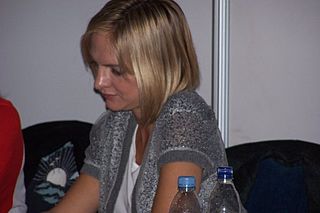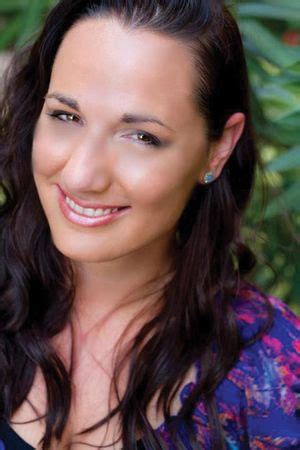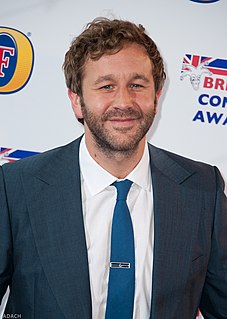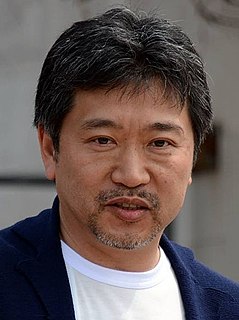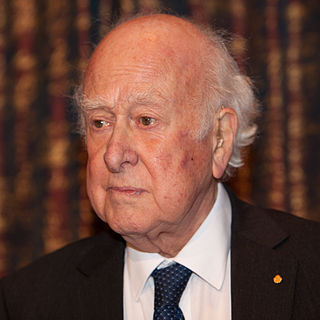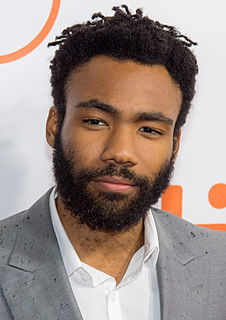A Quote by Boti Bliss
You know when you are doing a movie like [Ted Bundy] you try to as much as you can keep it upbeat when you are not working on the scene, so you cannot totally get disgusted and lost in it and also from my point of view I was ignorant to it all what was kind of going on.
Related Quotes
My character [in Ted Bundy] was unaware of all the murders that were being committed by him, so I kind of tried to keep myself out of it and kind of keep an innocent point of view from it. The hard scenes for me were the sex scenes just because there's like sexual deviance going on and there was stuff that he want her to do and that was really disturbing.
You do know him, so that's a lame excuse." It was a lame excuse, but it was the best I had. "How do you really ever truly know someone?" Brit smacked her hands to her cheeks and she shook her head. "He's not a serial killer." "Speaking of serial killers, everyone thought Ted Bundy was a really charming, handsome man. And look how he turned out. Psycho." Jacob stared at me. "He's not Ted Bundy.
I don’t know if I’d do an action movie because I don’t know if I could keep a straight face honestly, I just think it’s so silly. Like I love watching them but I can’t imagine me doing one. Actually, you know what I’ve done, just for fun because I didn’t think there was any way that I could be in a superhero movie, so I’ve done a scene in the new “Thor” movie, just for that. I just do like one scene, which was quite fun.
I might spend 100 pages trying to get to know the world I'm writing about: its contours, who are my main characters, what are their relationships to each other, and just trying to get a sense of what and who this book is about. Usually around that point of 100 pages, I start to feel like I'm lost, I have too much material, it's time to start making some choices. It's typically at that point that I sit down and try to make a formal outline and winnow out what's not working and what I'm most interested in, where the story seems to be going.
There are so many varieties of films. You've got the jet-lagged films, where you fly to Bulgaria or wherever and get off the plane, and they bring you right to the set, and you start working, even though I don't even know my name, it's been such a long flight. Then there's the alimony films. But after you've been doing this long enough, you've gotten into every kind of situation you can imagine, even to the point where there is basically no script, so you have to kind of do it scene by scene and survive.
Like every novelist, I fantasise about film. Novelists are not equipped to make a movie, in my opinion. They make their own movie when they write: they're casting, they're dressing the scene, they're working out where the energy of the scene is coming from, and they're also relying tremendously on the creative imagination of the reader.
Sometimes when you hear so much and everybody is praising you, you can get lost in that. You can start thinking that you are on a higher pedestal than everyone else. So I try to stay level headed, humble and the best way to do that is to not really acknowledge it that much. I just keep grinding and working as hard as I can. I also set my goals higher so that I don't have time to be content with my place in life and in my career.
I also think within the scene, a specific scene - if I were to play a part that I played 10 years ago now, my interpretation of that scene would be totally different. I would be making different choices. Because I can't somehow subtract all of the experiences that I've had in my life. And it's fascinating to see, because somewhere I'm very reflective in that. You know, I've been playing basically actually close to 40 years old, so I'm somewhere lost in age in this movie. But it's been fascinating to see that I can't subtract that time.
The way I write is very much without kind of a goal. I have something I'm interested in and then I decide I'm going to explore it. I don't know where the characters are going to go, I don't know what the movie is going to do or what the screenplay is going to do. For me, that's the way to keep it alive.
